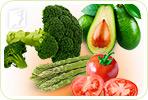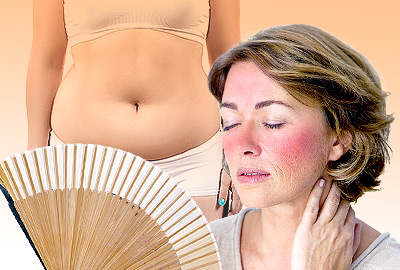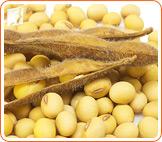
With popularity comes scrutiny. Like politics, celebrities, and new health crazes, the soy debate is no different. It's no secret that soy has a variable effect on estrogen levels, but the jury is still out on its strength and health value. Some suggest the belief that soy consumption is harmful is actually rooted in the techniques used to grow the beans, rather than in the phytoestrogenic compounds found in soy products. The organic versus non-organic farming controversy is one that has prompted a heated debate.
If you are experiencing hot flashes or other menopause symptoms and are considering adding natural soy supplements to your diet, the information below may help you make a decision.
How Does Soy Affect Your Menopause Symptoms?
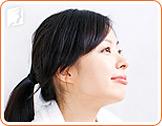
Soy is rich in genistein and daidzein, two estrogen-like compounds that can replace estrogen in menopausal women, thereby minimizing symptoms. Among Japanese and Chinese women - where soy is traditionally consumed at much higher rates than in Western countries - only 7% report suffering from hot flashes. On the other hand, almost 55% of American women experience hot flashes during menopause. However, it is not known if this is due to differences in soy consumption alone.
What Is Organic Farming?
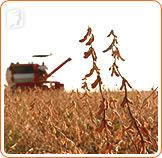
The standard of organic farming is to produce food as naturally as possible, without the use of synthetic fertilizers and pesticides, and to have as little negative impact on the earth as possible. In order to be considered an organic farm, there are stringent rules that must be followed, including:
- Only approved fertilizers.
- No use of genetically modified organisms.
- Prevention of soil erosion.
What's the Difference in Environmental and Health Impacts of Organic vs. Non-Organic Soy?
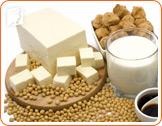
Many people claim that soy is bad for you and can cause health problems, but an equal number of people suggest it's not the soy itself, but the cultivation and processing of the soy. The subject has been fiercely debated in public broadcasts and online forums. Meanwhile, scientific evidence has shown no link between health damage and soy consumption, organic or not, and expert advisory boards have found no significant difference between organic and non-organic soybeans.
Recommendation
Research the subject to determine its importance in your life. For instance, you may have an estrogen dominance problem as opposed to a deficiency, in which case soy supplements may not be the right course of treatment. It is always a good idea to consult with a doctor and discuss the available treatment options for menopause symptoms. To read about the lifestyle changes you can make and the natural supplements available for menopause relief, follow this link.
Sources
- Hopkins, V. & Lee, J.R. (1996). What Your Doctor May Not Tell You About Menopause. New York: Warner Books Inc.
- Love, S. (2003). Menopause and Hormone Book. New York: Three Rivers Press.
- Thurston, R.C. & Joffe, H. (2011). Vasomotor Symptoms and Menopause: Findings from the Study of Women's Health Across the Nation. Obstetrics and Gynecology Clinics of North America, 38(3), 489-501. doi: 10.1016/j.ogc.2011.05.006
- University of Maryland Medical Center. (2014). Soy. Retrieved January 8, 2016, from https://umm.edu/health/medical/altmed/supplement/soy
- Watson, S. (2012). Organic food no more nutritious than conventionally grown food. Harvard Health. Retrieved January 8, 2016, from http://www.health.harvard.edu/blog/organic-food-no-more-nutritious-than-conventionally-grown-food-201209055264

